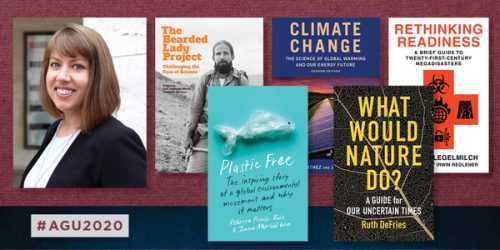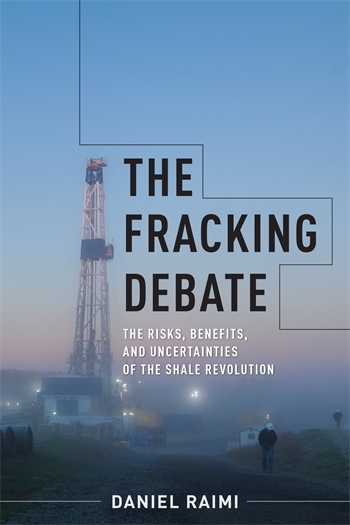Stuart Sim: The Earth and Profit
April 22 was Earth Day, and in honor of the occasion, we will be running a series of posts over the course of this week by authors of our environmental studies titles. These articles will cover a wide range of topics relevant to the study of the earth and the environment, from global climate change to the effects of economic development on the environment in China.
Today’s post in our Earth Day 2012 blog series is an article by Stuart Sim, Professor in Critical Theory and Long Eighteenth-Century English Literature at Northumbria University, and author of (among other works) The Carbon Footprint Wars: What Might Happen If We Retreat From Globalization?, The End of Modernity: What the Financial and Environmental Crisis Is Really Telling Us, and Addicted to Profit: Reclaiming Our Lives from the Free-Market.
The Earth and Profit
Stuart Sim
The advent of the Anthropocene era, when the activities of humankind determine how the environment develops and behaves, has had a very significant effect on our relationship with, and attitude towards, the Earth. Increasingly, the Earth is viewed primarily as a resource to be exploited; an exploitation sanctioned by our commitment to economic growth and material progress. Modernity, the socio-economic system we have developed in the West over the last few centuries, demands that we keep finding ways of improving the Gross National Product year on year. So we are encouraged by politicians, fixated as they invariably are on the necessity for growth, to regard ourselves as essentially machines for the generation of profit, and it has been depressing in recent years to see how the profit motive has been introduced into more and more areas of our lives. In my current book Addicted to Profit: Reclaiming Our Lives from the Free Market, I describe Western society as a ‘profitocracy’ since that seems to sum up how we have allowed the profit motive to become the dominant factor in our existence. No part of the public sector now seems immune from the requirement to turn a profit, and this is having a profound, and I would argue largely negative, impact on our lifestyles.
The relentless emphasis on profit to spur economic growth has had some highly dangerous side-effects, such as various kinds of environmental degradation and, of course, the alarming phenomenon of global warming, arguably the most pressing problem facing humanity today. Yet the campaign for a shift to greener energy sources has had remarkably little impact on national policies around the globe, remaining stuck most of the time at the level of empty rhetoric: every nation makes promises, international conferences are held and protocols put forward for consideration, but little of substance ever really happens. The obsession with growth, and the need for ever-increasing levels of corporate profit, win out, and things go on much as before on the energy front.
Of late, meeting those energy requirements has led to some desperate suggestions on how to stave off the threat posed by ‘peak oil’: drilling under the Arctic Ocean has been mooted, for example, a proposal which, ironically enough, will become easier as a result of global warming since this is reducing the ice cover in the Arctic as temperatures there inexorably rise. Increasing interest is being shown in the technique of ‘fracking’, drilling ever deeper into the Earth to extract natural gas from shale, despite fears of what the effect of this might be on the environment, with earthquakes being a distinct possibility. Some countries have banned the activity, but the UK has recently given it the go-ahead despite public protests. Again, the argument given is that the process will help to ensure economic growth, and of course the corporate sector is only too willing to become involved in something which looks to be a surefire source of profit. The threat posed by global warming has been sidelined in the last few years as governments seek to resurrect their national economies in the aftermath of the credit crunch of 2007-8. So we redouble our efforts to exploit the Earth, regardless of what the eventual cost will be.
The credit crunch ought to have made us reconsider the whole ethos of modernity, but unfortunately we have not shed our belief in the need for economic growth nor our addiction to profit – or at least not enough of us have, despite calls from some quarters for a ‘de-growth’ model of society to be instituted, as well as the continuous campaigning carried out by the Green movement. I’ve explored this problem over the course of three books now: The Carbon Footprint Wars (2009), The End of Modernity: What the Financial and Environmental Crisis Is Really Telling Us (2010), and Addicted to Profit: Reclaiming Our Lives from the Free Market (2012), all of which argue the need of a radical rethink of how we are currently running society, what our goals are, and where we see value to lie. We continue to put economics at the forefront of our lives and to act as if that justified anything we did to the environment to promote growth and profit. Economic crisis simply seems to have reinforced the blind-spot that we have about the effect this might have on the Earth, but we really should start paying more attention to the warning signs that are accumulating around us – warning signs that the Earth can only be exploited up to a certain point, and that we are taking serious risks if we go past that point in the heedless pursuit of profit. Earth Day ought to act as a wake-up call to us that it is time to face up to our addiction and recognise the damage that it is doing.






